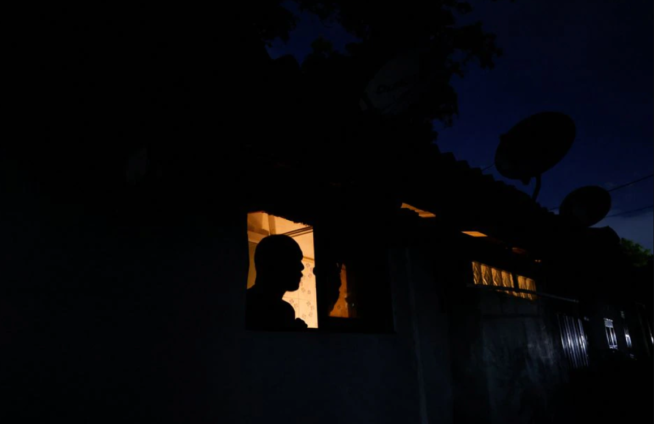The Institute for Energy Security (IES) has cautioned that the government may soon be forced to increase its import of electricity to compensate for reduced local energy production.
This follows the shutdown of Sunon Asogli Power’s 560 MW power plant due to the Electricity Company of Ghana’s (ECG) inability to meet its payment obligations.
According to IES, Ghana had already been importing power for the past four weeks prior to the shutdown, a situation that could worsen if the plant remains offline.
The financial difficulties faced by ECG could further destabilize the nation's power supply.
Speaking in an interview with Citi FM, IES Executive Director, Nana Amoasi VII, emphasized the gravity of the situation.
He pointed out that Ghana’s reliance on power imports, coupled with the Sunon Asogli shutdown, poses a serious threat to energy security.
Nana Amoasi VII called for immediate and sustainable solutions to secure the country’s energy sector, urging the government to address the mounting debt owed to Independent Power Producers (IPPs) and ensure consistent electricity production.
The IES also noted that if the current financial issues are not resolved, Ghana may face a more severe energy crisis, potentially driving up costs for both the government and consumers.
“Over the last four weeks, we have been importing power, particularly from Cote d’Ivoire. We were importing power at the time that Sunon Asogli was generating, and daily, they do more than 400 megawatts. Just that we have not realised the impact or seen the impact of the shutdown because of the weather."
“But now that we are getting out of the wet weather, the impact may be felt in the coming days. You will remember that last year around December 4th, they [Sunon Asogli] shutdown for the first time and the ministry intervened swiftly, but this time around they are choosing to start with an importation [of power] and probably go to the deck and meet Sunon Asogli."
“But I think we must start from somewhere, but I don’t believe in two, three months, ECG can address their problems. It requires more of an investment into their operation, more competence as well, and less political interference to address some of these issues.”
Latest Stories
-
2024 Election: I am sad EC disqualified me, but I endorse CPP’s candidate – PNP’s Nabla
2 mins -
I want to build a modern, inclusive country anchored by systems and data – Bawumia to CSOs
3 mins -
Miss Health Ghana 2024: Kujori Esther Cachana crowned new Health Ambassador
11 mins -
Livestream: The manifesto debate on WASH and climate change
17 mins -
Alan Kyerematen saddened by NDC and NPP’s neglect of Krofrom Market in the Ashanti Region
21 mins -
CSIR Executive Director urges farmers to adopt technology for improved farming
34 mins -
Football Impact Africa’s Ghetto Love Initiative inspires change in Teshie
45 mins -
Peter Toobu calls for tighter border security over uncovered weapons at Tema Port
48 mins -
Gov’t has failed its commitment to IPPs – Ablakwa
52 mins -
Sell Chrome to end search monopoly, Google told
1 hour -
KATH to install seven new dialysis machines by end of November
1 hour -
Walewale: Police confiscate 37 bags of cocoa beans suspected of being smuggled out of Ghana
1 hour -
‘Expired’ Rice Scandal: FDA confirms rice was safe for consumption after rigorous lab tests
1 hour -
Many women have experienced intimate partner violence – Angela Dwamena Aboagye
2 hours -
Power challenges persist due to government’s mismanagement of revenues – Okudzeto Ablakwa
2 hours

